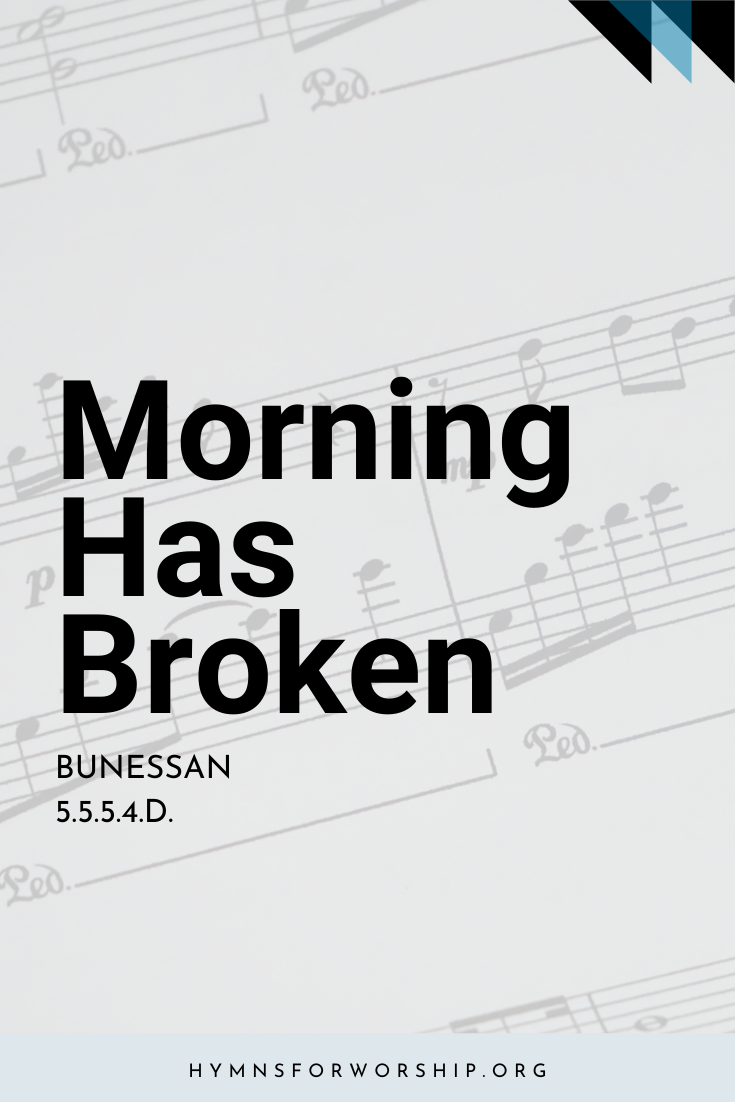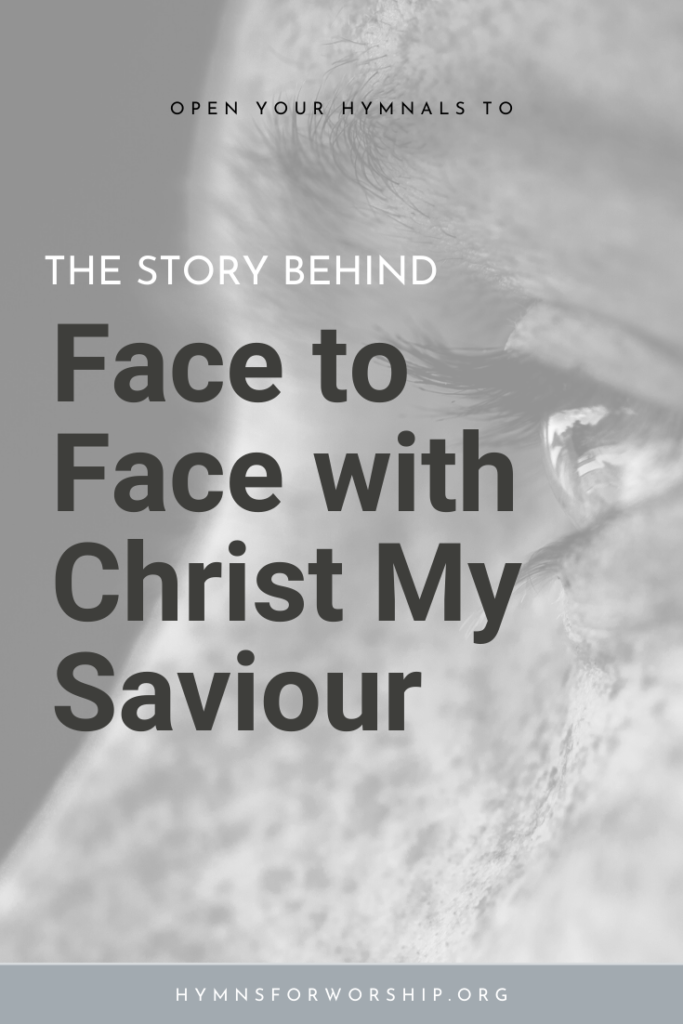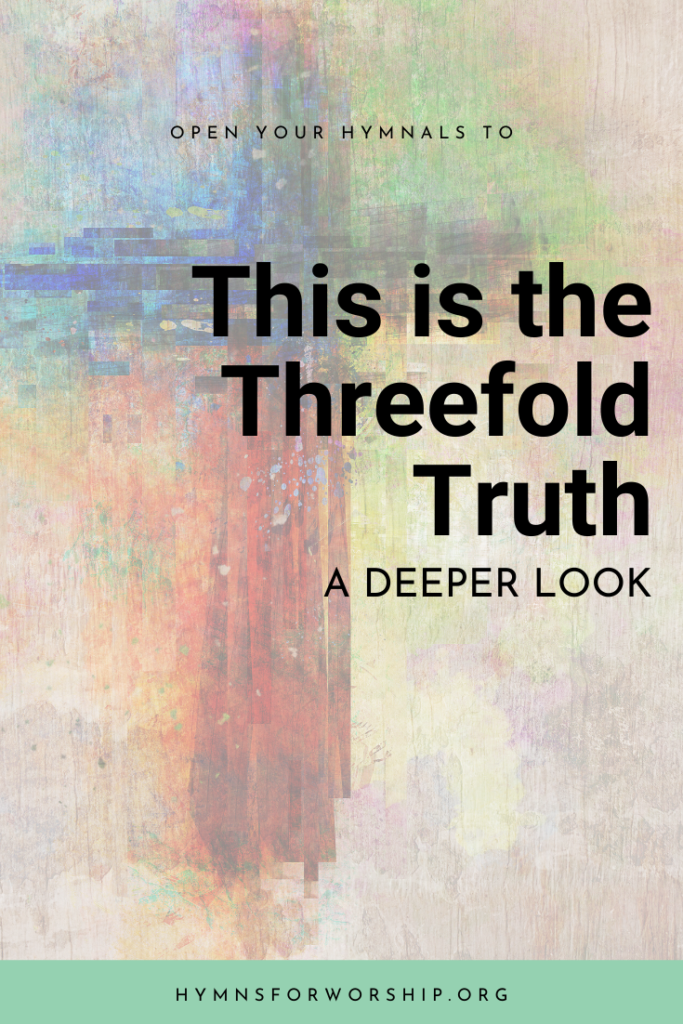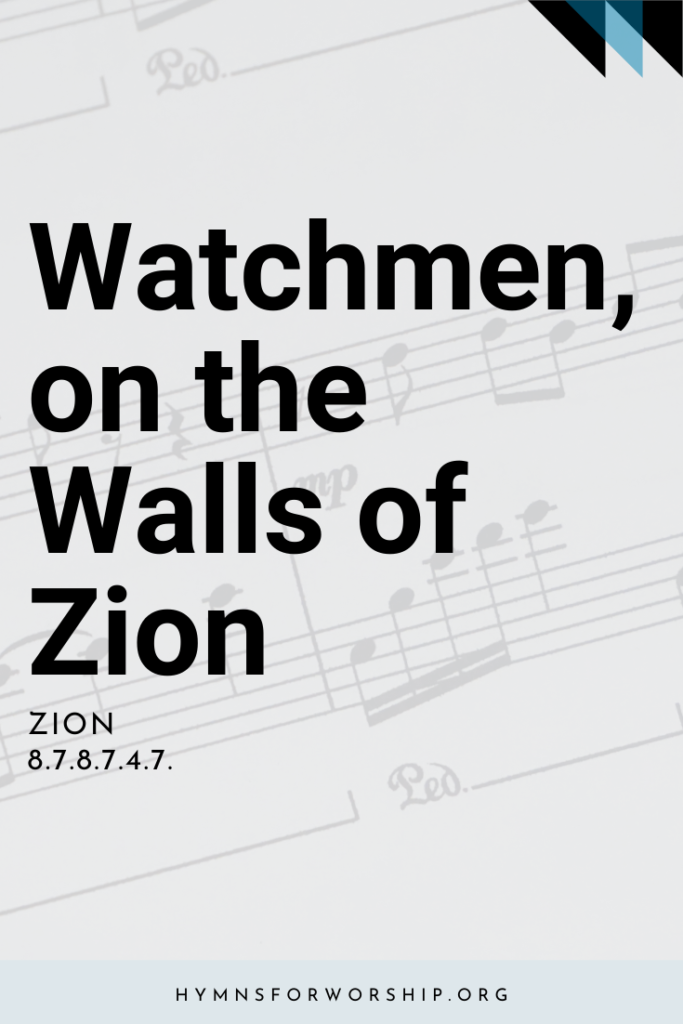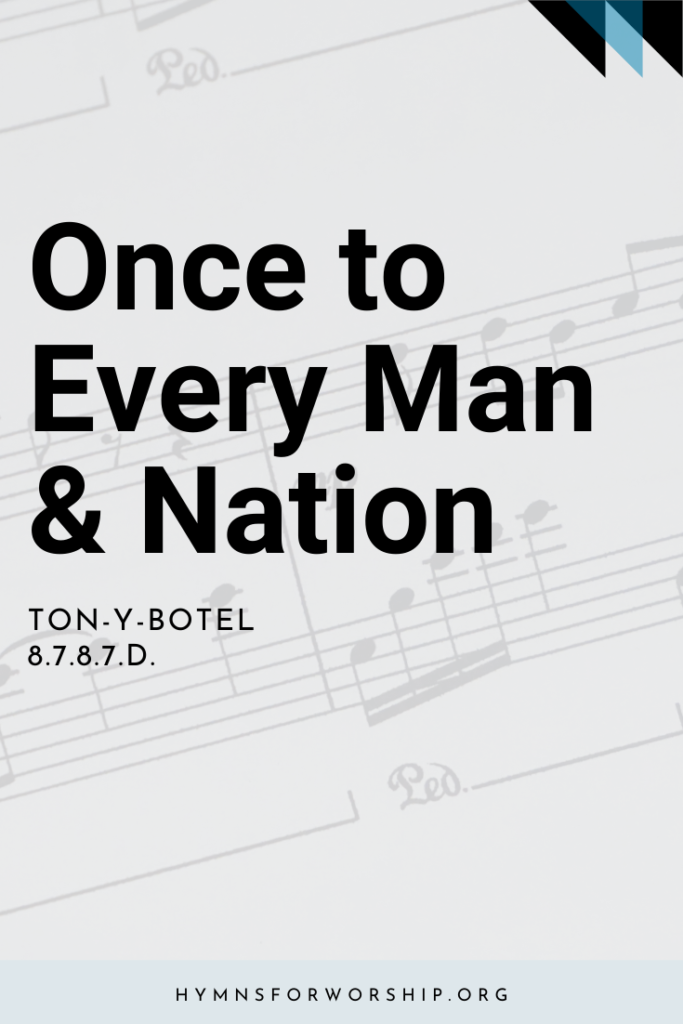WORSHIP >> Morning WORSHIP
SDAH 44
Morning has broken like the first morning,
Blackbird has spoken like the first bird.
Praise for the singing! Praise for the morning!
Praise for the springing fresh from the Word!
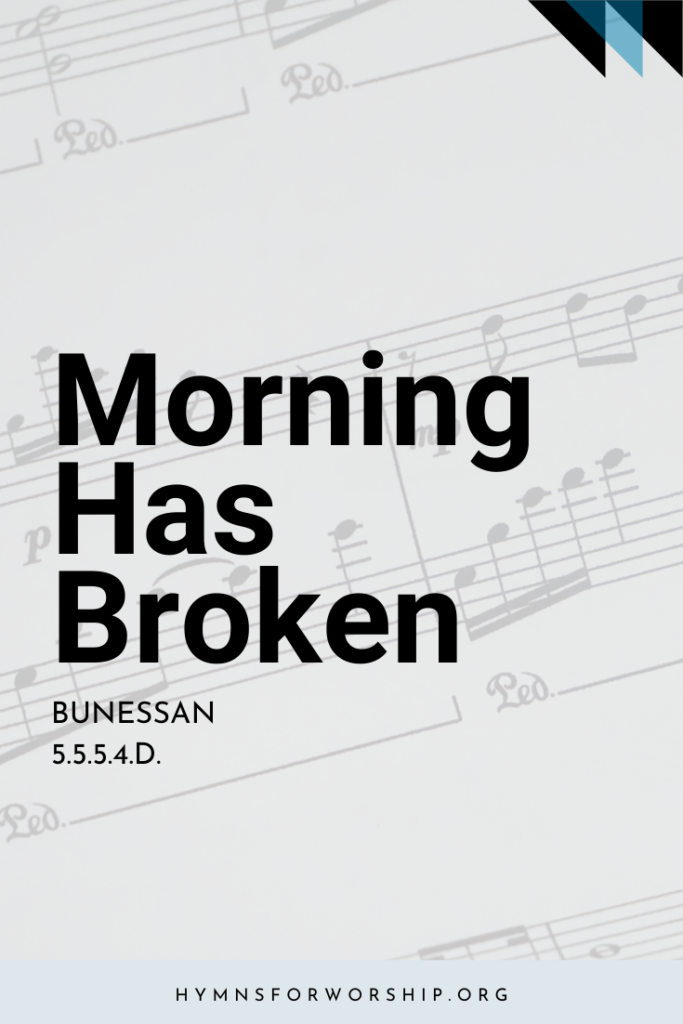

Text
1
Morning has broken like the first morning,
Blackbird has spoken like the first bird.
Praise for the singing! Praise for the morning!
Praise for the springing fresh from the Word!
2
Sweet the rain’s new fall sunlit from heaven,
Like the first dewfall on the first grass.
Praise for the sweetness of the wet garden,
Sprung in completeness where His feet pass.
3
Mine is the sunlight! Mine is the morning
Born of the one light Eden saw play!
Praise with elation, Praise every morning,
God’s recreation of the new day!

Hymn Info
Biblical Reference
(a) Gen 1:5, 21 (b) Gen 2:6
Author
Eleanor Farjeon (1881-1965)
Year Published
1931
Performance Suggestions
Unison
Copyright
Words used by permission of David Higham Associates Ltd. Arrangement copyright 1984 by Melvin West
Hymn Tune
BUNESSAN
Metrical Number
5.5.5.4.D.
Arranger
Melvin West (1930-)
Tune Source
Traditional Gaelic Melody
Year Composed
1984
Theme
MORNING WORHIP
Hymn Score
[tnc-pdf-viewer-iframe file=”https://hymnsforworship.org/wp-content/uploads/2017/03/SDAH044.pdf” width=”900″ height=”850″ download=”true” print=”true” fullscreen=”false” share=”true” zoom=”true” open=”true” pagenav=”true” logo=”true” find=”true” language=”en-US” page=”” default_zoom=”auto” pagemode=””]
Piano Accompaniment
[wonderplugin_audio id=”45″]
Notes
Get to know the hymns a little deeper with the SDA Hymnal Companion. Use our song leader’s notes to engage your congregation in singing with understanding. Even better, involve kids in learning this hymn with our homeschooling materials.
Percy Dearmer (see SDAH 259), while editing the English hymnbook Songs of Praise (1931), wanted to use this lovely folk song melody, but found no text in this unusual meter, 5.5.5.4. (The SDAH has only this one.) Either he did not know that in the 1927 Revised Church Hymnary this tune was used with “Child in a Manger” or the committee rejected it. At any rate, he asked Eleanor Farjeon to write a poem to fit this melody that would help people to sing about their thankfulness for each new day as it comes.
The words remind us of Genesis 1:3-5: “And God said, let there be light: and there was light. And God saw the light, that it was good: and God divided the light from the darkness. And God called the light Day, and the darkness he called Night. And the evening and the morning were the first day.” And every morning, with “God’s re-creation of the new day,” it is our privilege to say, “It is of the Lord’s mercies that we are not consumed, because his compassions fail not. They are new every morning: great is thy faithfulness” (Lam 3:22,23; see also SDAH 100).
The hymn was published in Songs of Praise, with the heading “Thanks for a Day,” and has since been used by many other hymnbook. In the 1960s it was appropriated and recorded by a well-known folk singer, which has helped to make it popular among young people.
Eleanor Farjeon was born February 13, 1881, at Westminster, London. Her father was a novelist, and she took quite naturally to a literary life, developing her talents by writing poems, stories, and music. She was prolific and successful, receiving the Carnegie Medal, the Hans Anderson International Medal, and the Regina Medal, mostly for the quality of her works for children. Among her more than 80 works are Nursery Rhymes of London Town, 1916; A Nursery in the Nineties, 1935; and Silversand and Snow, 1958. She died in London June 5,1965.
BUNESSAN is a Gaelic folk melody first written down by Alexander Fraser after having heard it sung by a wandering Scottish Highlander. In 1888 Lachlan MacBean published it in Songs and Hymns of the Gael, with the text “Child in a Manger.” The name BUNESSAN is taken from a small township in Ross of Mull in the southeastern part of the Isle of Mull, birthplace of Mary MacDonald, who wrote the Gaelic original of this Christmas text.
The harmonically transparent arrangement by Melvin West (see Biographies) is most appropriate for the folk song style of this music.

